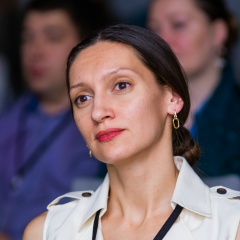Сегодня исполнительный директор Фонда профилактики рака Илья Фоминцев давал онлайн-лекцию о, собственно, профилактике рака.
Я отслушала все два с лишним часа этих революционных на первый взгляд заявлений. Впрочем, благодаря "Сай-хабу", а также регулярному чтению "Медспешиал" и телеграм-канала "Намочи Манту" лично меня почти ничего не поразило.
То же "Намочи Манту" дало ссылку на интервью с Антоном Родионовым, где он разжевал и на блюдечке преподнес информацию про чекапы и диспансеризации: https://the-challenger.ru/sos/chekap-vs-dispanserizatsiya-nuzhno-li-vam-prohodit-kompleksnoe-obsledovanie
Самыми интересными для меня оказались, разумеется, искажения. Вроде бы ничего особенного, но осознаешь это только после того, как тебя ткнут носом в lead-time bias. Заключается он в том, что ранняя диагностика некоторых видов рака и последующее лечение не оказывает эффекта на продолжительность жизни, однако может создаваться впечатление, что оказывает. Илья Фоминцев приводил сферический пример: сорокалетним женщинам предложили скрининг на рак молочной железы. Тех, у кого он был обнаружен в ранней стадии, лечили, так что они перешагнули пятилетний порог выживаемости, но почти все они умерли спустя шесть-семь лет после установления диагноза. Другие сорокалетние женщины на скрининг не пришли и появились у врача лет в сорок пять, после первых симптомов. Они тоже скончались в сорок семь лет, только качество их жизни ухудшилось лишь в последние два года, а не в последние семь.
Главная, на мой взгляд, мысль, высказанная Фоминцевым: для диспансеризации необходимо четко представлять себе цель всех исследований. Щепотка моего понимания темы: целью должно быть выявление неагрессивных онкозаболеваний, для которых ваш риск повышен по сравнению с остальной популяцией. А если рак агрессивный, то только knock-knock-knocking on heaven's door.
Я отслушала все два с лишним часа этих революционных на первый взгляд заявлений. Впрочем, благодаря "Сай-хабу", а также регулярному чтению "Медспешиал" и телеграм-канала "Намочи Манту" лично меня почти ничего не поразило.
То же "Намочи Манту" дало ссылку на интервью с Антоном Родионовым, где он разжевал и на блюдечке преподнес информацию про чекапы и диспансеризации: https://the-challenger.ru/sos/chekap-vs-dispanserizatsiya-nuzhno-li-vam-prohodit-kompleksnoe-obsledovanie
Самыми интересными для меня оказались, разумеется, искажения. Вроде бы ничего особенного, но осознаешь это только после того, как тебя ткнут носом в lead-time bias. Заключается он в том, что ранняя диагностика некоторых видов рака и последующее лечение не оказывает эффекта на продолжительность жизни, однако может создаваться впечатление, что оказывает. Илья Фоминцев приводил сферический пример: сорокалетним женщинам предложили скрининг на рак молочной железы. Тех, у кого он был обнаружен в ранней стадии, лечили, так что они перешагнули пятилетний порог выживаемости, но почти все они умерли спустя шесть-семь лет после установления диагноза. Другие сорокалетние женщины на скрининг не пришли и появились у врача лет в сорок пять, после первых симптомов. Они тоже скончались в сорок семь лет, только качество их жизни ухудшилось лишь в последние два года, а не в последние семь.
Главная, на мой взгляд, мысль, высказанная Фоминцевым: для диспансеризации необходимо четко представлять себе цель всех исследований. Щепотка моего понимания темы: целью должно быть выявление неагрессивных онкозаболеваний, для которых ваш риск повышен по сравнению с остальной популяцией. А если рак агрессивный, то только knock-knock-knocking on heaven's door.
Today, Ilya Fomintsev, Executive Director of the Cancer Prevention Foundation, gave an online lecture on cancer prevention.
I listened to all two and a half hours of these seemingly revolutionary statements. However, thanks to the Sai Hub, as well as the regular reading of the Medical Special and the telegram channel Namochi Mantu, I was personally not struck by anything.
The same "Namochi Mantu" gave a link to an interview with Anton Rodionov, where he chewed and presented on the silver platter information about checks and medical examinations: https://the-challenger.ru/sos/chekap-vs-dispanserizatsiya-nuzhno-li-vam -prohodit-kompleksnoe-obsledovanie
Of course, distortions turned out to be the most interesting for me. It seems to be nothing special, but you realize this only after you are poked with your nose in lead-time bias. It consists in the fact that the early diagnosis of certain types of cancer and subsequent treatment does not have an effect on life expectancy, but it may seem that it has. Ilya Fomintsev gave a spherical example: forty-year-old women were offered screening for breast cancer. Those who were discovered at an early stage were treated so that they crossed the five-year survival threshold, but almost all of them died six to seven years after the diagnosis was made. Other forty-year-old women did not come for screening and appeared at the doctor's office at forty-five, after the first symptoms. They also died at the age of forty-seven, only the quality of their life worsened only in the last two years, and not in the last seven.
The main, in my opinion, thought expressed by Fomintsev: for medical examination it is necessary to clearly understand the purpose of all studies. A pinch of my understanding of the topic: the goal should be to identify non-aggressive oncological diseases for which your risk is increased compared to the rest of the population. And if the cancer is aggressive, then only knock-knock-knocking on heaven's door.
I listened to all two and a half hours of these seemingly revolutionary statements. However, thanks to the Sai Hub, as well as the regular reading of the Medical Special and the telegram channel Namochi Mantu, I was personally not struck by anything.
The same "Namochi Mantu" gave a link to an interview with Anton Rodionov, where he chewed and presented on the silver platter information about checks and medical examinations: https://the-challenger.ru/sos/chekap-vs-dispanserizatsiya-nuzhno-li-vam -prohodit-kompleksnoe-obsledovanie
Of course, distortions turned out to be the most interesting for me. It seems to be nothing special, but you realize this only after you are poked with your nose in lead-time bias. It consists in the fact that the early diagnosis of certain types of cancer and subsequent treatment does not have an effect on life expectancy, but it may seem that it has. Ilya Fomintsev gave a spherical example: forty-year-old women were offered screening for breast cancer. Those who were discovered at an early stage were treated so that they crossed the five-year survival threshold, but almost all of them died six to seven years after the diagnosis was made. Other forty-year-old women did not come for screening and appeared at the doctor's office at forty-five, after the first symptoms. They also died at the age of forty-seven, only the quality of their life worsened only in the last two years, and not in the last seven.
The main, in my opinion, thought expressed by Fomintsev: for medical examination it is necessary to clearly understand the purpose of all studies. A pinch of my understanding of the topic: the goal should be to identify non-aggressive oncological diseases for which your risk is increased compared to the rest of the population. And if the cancer is aggressive, then only knock-knock-knocking on heaven's door.
У записи 4 лайков,
0 репостов.
0 репостов.
Эту запись оставил(а) на своей стене Елена Савинова

























